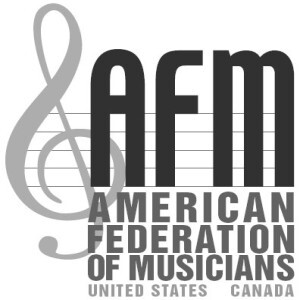
On this day in labor history, the year was 2011.
That was the day the National Labor Relations Board ruled that musicians in Lancaster, Pennsylvania were employees, not independent contractors.
Veteran musicians with the Lancaster Symphony Orchestra attempted to organize a union in 2007.
They challenged the dictatorial methods by which musicians were treated.
They wanted a contract to spell out rules for hiring, firing, auditioning, grievance procedures and more.
When it came time to sign union cards, the Symphony opposed the election, claiming the musicians were independent contractors.
The musicians filed with the regional Labor Relations Board. After receiving an unfavorable ruling, they turned to the national offices in Washington, DC.
There, the Board utilized the “common law agency test,” to determine the musicians’ status. Questions discern how much control workers have over the way they work, are they highly skilled, how are they paid, do they provide their own tools, or in this case, instruments.
When more answers tilt towards yes, workers are considered independent contractors.
The NLRB determined that though these workers are paid on a 1099 instead of a W-2 form, they are employees because of their working conditions.
They concluded that orchestral management exerted a great deal of control. Management determined musicians’ dress, their posture and behavior before, during and after rehearsals and concerts.
Management also imposed discipline and firings. Musicians voted to join the Greater Lancaster Federation of Musicians the next spring.
But their victory was soon undercut by management’s refusal to negotiate a first contract.
The musicians filed an unfair labor practice and won. The symphony took the case to a federal appeals court, which settled in the union’s favor in Spring 2016.
More Episodes
 2024-11-06
2024-11-06
 2024-11-05
2024-11-05
 2024-11-04
2024-11-04
 2024-11-03
2024-11-03
 2024-11-02
2024-11-02
 2024-11-01
2024-11-01
 2024-11-01
2024-11-01
 2024-11-01
2024-11-01
 2024-11-01
2024-11-01
 2024-11-01
2024-11-01
 2024-11-01
2024-11-01
 2024-10-21
2024-10-21
 2024-10-18
2024-10-18
Create your
podcast in
minutes
- Full-featured podcast site
- Unlimited storage and bandwidth
- Comprehensive podcast stats
- Distribute to Apple Podcasts, Spotify, and more
- Make money with your podcast
It is Free
- Privacy Policy
- Cookie Policy
- Terms of Use
- Consent Preferences
- Copyright © 2015-2024 Podbean.com




